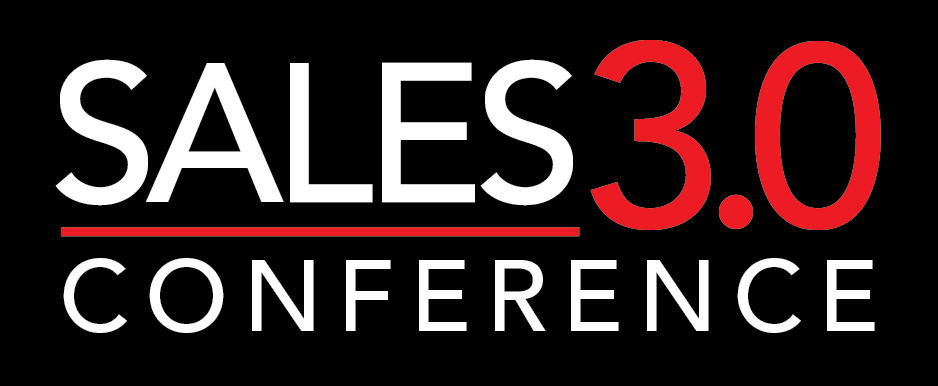Sales leaders have two fundamental goals: to grow revenue and improve sales productivity. Sales leaders will readily embrace any strategy, talent, tool, or process that serves these two objectives. Will AI (artificial intelligence) give your sales team a performance leap forward? The answer is yes.
We offer five powerful AI insights that will drive sales success.
Insight #1: “Generative AI” Is What’s New
You are right: AI has been around a long time. AI powers search engines, map software, chatbots, and analytical tools. These applications tap into large data sets, apply algorithms, self-learn, and offer predictive answers. Most of the sales automation tools you use today rely on AI elements to power their functions, including e-commerce, lead generation software, custom messaging, CRM, quote/pricing tools, remote solution management, and customer service chatbots. Fortunately for sales teams, these applications get better and better each year.
So, what’s new? Generative AI.
All the recent buzz about AI has to do with generative AI. In a nutshell, this AI technology will create original content, including e-mails, text, PowerPoint presentations, music, code, original illustrations, and insightful analytics. When prompted with the right question, it will fulfill your request. Don’t like the answer? Refine your request by asking additional questions. It will continue to improve its answer. In other words, it’s like having a discussion with a content expert.
Consider ChatGPT as an example of this new generative AI. “ChatGPT” stands for Chat Generative Pre-Trained Transformer. Meaning what? Give it enough data and it will answer your questions, create content, and offer better answers as you submit follow-on inquiries. ChatGPT is a text generator. Other generative AI tools using the same large data-set technology perform additional exceptional feats, including drafting Websites, suggesting the best Excel analytics, writing an e-book, crafting sales messages, and turbo-charging data inquiries. The output of these generative AI tools is eerie, to say the least. Each week, new applications appear for specific tasks. The number of new tools is in the hundreds and growing every day. One small example: Resume-writing AI software will turn your awkward attempt into a stunning resume. To further make the point, you will never use a “classic” search engine again once you use a generative AI tool to answer your web questions. The prediction of generative AI is that it becomes almost life-like as it serves you, your sales team, buyers, and customers.
Insight #2: Manage It or It Will Manage You
The AI applications for sales departments seem almost unlimited. Here is an “early view” of how AI is affecting marketing, sales, and customer service.
- Marketing: Automated outreach campaigns, lead scoring and prioritization, individualized customer contact strategies, “nudge” promotion, personalization of response, “smart” engagement steps, and market and competitor analysis.
- Sales: Buyer analytics, custom sales messaging, contact timing, predictive purchasing scoring, automated e-mails, dynamic pricing, contract/offering configuration, upsell/cross-sell customer offers, order processing, CRM entries, sales outcome reporting, automated sales assistant, and personal earnings estimators.
- Customer service: Customer service inquiries, automated maintenance and service, accurate help inquiry response, and autonomous customer success agents.
And there is more. Consider these additional AI-enhanced tools for sales:
- Sales operations: Data-driven insights, segment analytics, sales forecasting, intelligent CRM systems, sales quota allocation, and sales strategy planning.
- Sales enablement: Sales training, sales playbooks, just-in-time sales messages, recruitment, selection, onboarding, and workforce planning.
However, self-proclaimed AI visionaries will scoff at this pedestrian list. “Get ready for a really massive change,” they will profess. “Selling will be radically different in the future. AI will challenge all your assumptions about successful buyer engagement. Terms like “marketing,” “sales,” and “customer service” will become obsolete. You might not even need salespeople!”
Huh? Now what?
New technologies bring new opportunities. You cannot ignore the emerging opportunities to improve performance. As you read this, your revenue team members are already experimenting with various AI tools. Meanwhile, you have vendors seeking to sell you the “ultimate sales AI platform.” And don’t forget legacy automation providers who are re-branding themselves as AI specialists. You need progress, not chaos. No, AI is not displacing sales departments.
But, what to do?
Don’t appoint an AI czar, hire an expensive consultant, or ask sales ops to fill the breach. Instead establish an internal “AI study group.” Appoint representatives from all sales functions: demand marketing, sales, customer service, sales operations, and sales enablement. Their charter: Learn about AI for sales improvement. Let this group be the clearing house for all AI opportunities and unofficial use. Have them present a monthly report on test pilots, vendor demos, exciting opportunities, and transformational suggestions. This group should encourage experimentation. It should suggest criteria for AI tools. It should not attempt to control progress but to support, encourage, and guide exploration of these new technologies. This group will be ideally suited to help evaluate (often expensive) transformational technologies.
The solution is to trust your own personnel to help guide the adoption of AI technologies.
Insight #3: Customer Confidence Will Grow
At the dawn of the Internet, I recall a planning meeting where the head of sales said, “People will never buy car insurance over the Web.” Hmmm.
Like flowing water, buyers will seek the path of least resistance. The first wave of generative AI tools will help improve current internal processes. However, allowing AI tools to interact with potential buyers and current customers will provide the highest productivity outcomes. AI tools will be able to “sense” a customer’s purchasing mood, ultimate intent, and point of satisfaction. Automated solution advisors will replace clunky e-commerce suggestion technology. ChatGPT-like avatars will answer buyer questions based on unique company/customer/product/competitor data sets. Informed help-bots will replace crowd-sourced help board sites. Say goodbye to awful telephone prompt menus. Instead, a conversational AI-bot will discuss your needs with you.
And your customers will not blink an eye.
Buyers will quickly adopt purchasing practices that make their ambitions easy to fulfill. When companies within an industry reach product parity, the winning company will adopt new channel solutions. AI-driven buying solutions will do a better job meeting customers’ buying needs. Your outdated go-to-customer channel model might put your company at risk.
Insight #4: Expect Seller Bypass
Oh no! Not again! Technologies (e-commerce) and low-cost resources (inside sales) have been displacing outside salespeople for decades. Will AI contribute to this erosion of classic sellers? Short answer: yes. But as companies retire legacy sales jobs, new sales jobs emerge. You will find them supporting new technologies and solutions. For example, expect a lot of new sales jobs to sell AI solutions! Think of sales jobs being on a conveyor belt: new sales jobs arise; old sales jobs retire. AI will accelerate this process.
It’s a simple equation: Companies deploy sellers when customers face risk and uncertainty and require persuasion to make a purchase. The revenue earned must offset the cost of the sales team. However, when customers pre-sanction purchases (low-risk purchases), buyer knowledge of the product is high (low uncertainty) and there is little need to convince the customer to purchase (low persuasion), then the need for a high-priced seller diminishes. Buyers are willing to switch to a lower cost sales channel when they know their needs, understand the product, and don’t need convincing to make a purchase. In such cases the customer does not need a salesperson. AI is ready to step into this selling equation.
There are three types of selling. AI will affect each differently.
- Fulfillment: Fulfillment selling features regular salesperson contact with existing customers as they re-order products. Expect AI sales agents to replace fulfillment sellers. E-commerce already has absorbed most of these purchases. No need for a salesperson when you know what to purchase. While the company will not have assigned sellers for fulfillment accounts, the company can depend on AI-identified changes in products, customer status, buying pattern, or market conditions to initiate situational seller outreach.
- Advocacy: Advocacy selling requires salespeople to convince the buyer to make a purchase. Advocacy might include selling superior features and benefits, compelling ROI, or risk avoidance (like warranties and life insurance). Advocacy might focus on negotiating the price and terms of the contract. A skilled salesperson uses advocacy to shape the buyer’s perception – encouraging the purchase. Will AI tools “persuade” buyers to purchase? This is an area for future investigation and investment.
- Innovation: The ultimate sales skill is to develop a “new” solution to meet a buyer’s unique needs. Innovation selling requires the seller to have keen insights into the buyer’s requirements and a commanding grasp of the company’s offerings to best configure a solution that solves the customer’s challenges. Generative AI might struggle to replace this selling competency.
AI sales agents are coming. They will quickly displace fulfillment sellers. Let’s watch as they attempt to replicate advocacy and innovation selling.
Insight #5: Mistakes Are Good
You need to start using generative AI sales tools immediately. Why? Your experience will guide your future AI commitments. Yes, you will make mistakes. But mistakes are instructional. New technologies create numerous applications. Generative AI is no different. The number of solutions is growing exponentially. Some are great; others are not. Platform solutions will absorb some. Others will not survive. You need to participate in the early stages of this revolution in selling. New AI companies want your business. They are seeking reference accounts. They will be accommodating and generous to win your business. Let them show you what they can do for you. Tell your AI study group to watch demos, oversee pilots, recommend purchases, and suggest adoption strategies. Evaluate results. Keep what works. Move on to the next set of solutions.
What Do These Five Insights Mean for You and Your Sales Team?
Some things are fads: Generative AI is not. You need to engage with this technology. You need to have a way to discover its benefits, avoid its pitfalls. You need a combination of both organic learning and planning oversight. Customers are always ready for new technologies that make their life simpler and more effective. AI will accelerate the strategic re-alignment of sales roles. Test AI tools: Adopt those that work; discard those that don’t. Finally, AI avoidance is not a sustainable strategy. Your future and the future of your sales team need you to lead your AI discovery and adoption effort.

Today’s blog post is by David Cichelli. He is the Revenue Growth Advisor for The Alexander Group, Inc.




